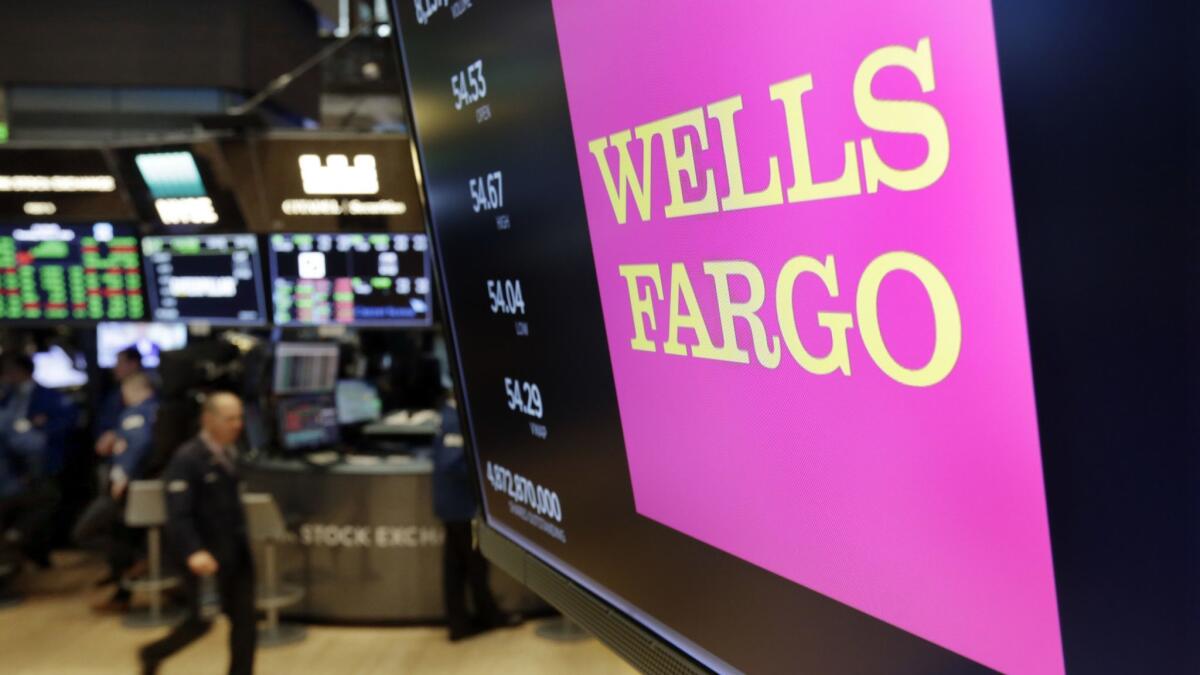Judge approves a $142-million settlement over the Wells Fargo accounts scandal, calling it ‘rough justice’

- Share via
Wells Fargo & Co. customers who didn’t consent to having 3.5 million accounts created by bankers trying to hit sales quotas are finally getting what amounts to an “imperfect solution.”
U.S. District Judge Vince Chhabria agreed Wednesday to issue final approval for a $142-million class-action accord that will pay an average of $35 for account holders at the center of the company’s worst scandal in modern history.
The San Francisco judge told attorneys who objected to the settlement that it has flaws, but said it’s “rough justice” and was better than pressing forward with trial or proceeding with lots of individual lawsuits.
“There’s no doubt this is an imperfect solution, but what’s the alternative?” Chhabria said. “I do believe this settlement is fair and there was a conscientious effort by both parties to come up with the least-worst solution for what’s happened here.”
The settlement is the latest fallout for Wells Fargo for creating unauthorized savings accounts, credit cards and lines of credit from May 1, 2002, to April 20, 2017. The bank said it fired more than 5,000 employees linked to the malfeasance, agreed to refund customers and paid fines totaling $185 million.
The practice of employees creating unwanted accounts as they tried to reach tough sales goals was first reported by the Los Angeles Times in 2013 after an investigation.
A spokesman for the bank said the outcome of Wednesday’s hearing is “another step forward for our broad and far-reaching $142 million settlement agreement that will support our efforts to make things right for our customers and further restore trust with all of Wells Fargo’s stakeholders.”
Payouts for individual customers will vary according to how many fake accounts were created in their names and the damage to their bank balances and credit scores.
Chhabria asked consumer attorneys who negotiated the deal to file additional paperwork that will delay approval until at least Monday. The filings will include an oversight mechanism to ensure the settlement is fully enforced before plaintiffs’ attorneys receive their $21-million portion. There also may be a bond requirement for appeals to deter “serial objectors” from trying to block the settlement.
Consumers from Utah and Texas will appeal the approved settlement to the U.S. Court of Appeals in San Francisco, said Steven Christensen, the attorney who filed the first consumer suit against the bank after the Consumer Finance Protection Bureau fined Wells Fargo in September 2016. The appeal will probably delay payouts to consumers.
“No one knows the true number of victims,” Christensen wrote in a court filing May 14. He called for further investigation into the bank’s behavior, including details into its alleged “shredding parties” where documents detailing the fake accounts were destroyed.
He also faulted the bank’s record-keeping.
“On occasion, they allege the records are meticulously maintained, and constitute sufficient evidence to force a helpless customer/victim into arbitration,” he said. “In the next breath, the CEO of the company publicly announced that many of the bank’s records were not reliable due to age and storage reasons.”
Supporters of the settlement say it’s probably impossible to identify every affected consumer. But the accord allows for the $142 million payout to be increased if enough customers file claims.
The fallout from the scandal has stretched into this year. Last month, the bank was hit with a $1-billion fine by federal regulators over other consumer abuses, and it is operating under an unprecedented growth cap slapped on it by the Federal Reserve as it works to improve its corporate governance.
More to Read
Inside the business of entertainment
The Wide Shot brings you news, analysis and insights on everything from streaming wars to production — and what it all means for the future.
You may occasionally receive promotional content from the Los Angeles Times.










